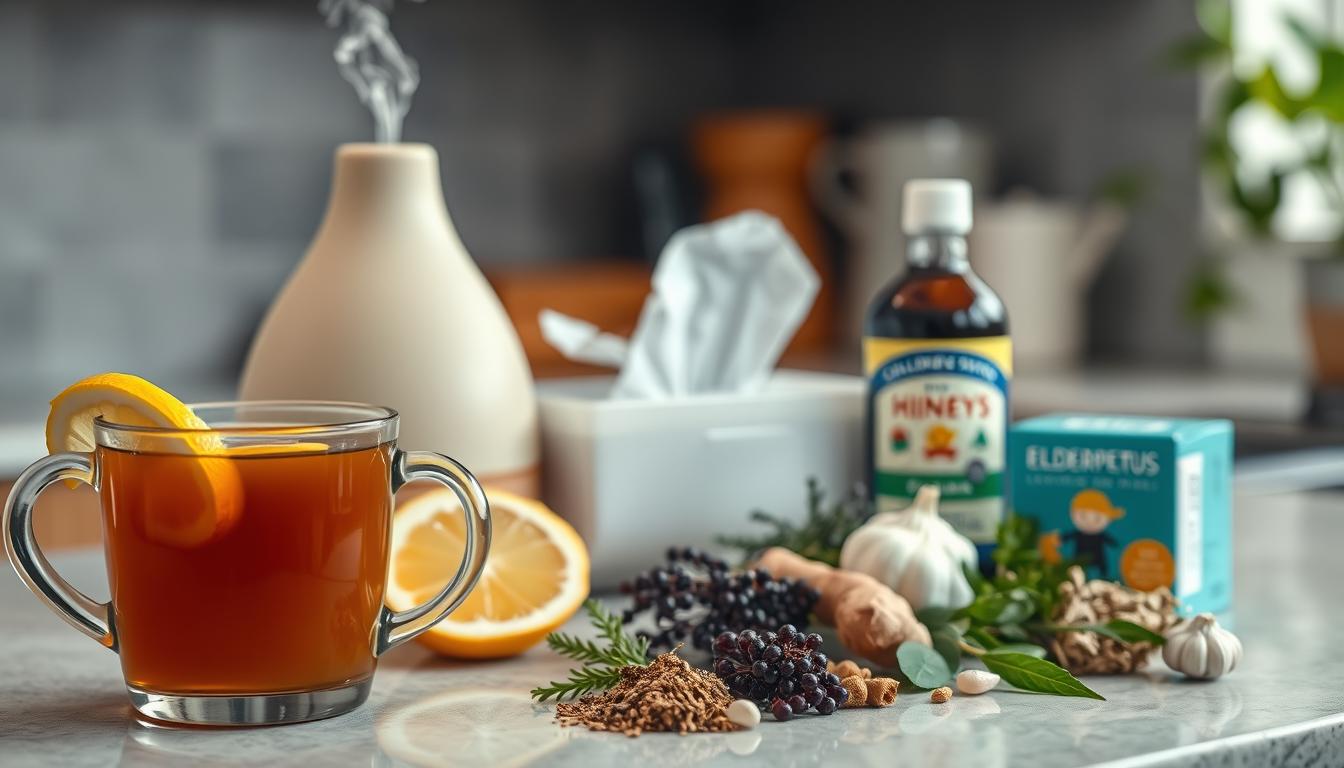Colds are a common affliction among children, with the average kid experiencing six to eight colds per year. This can be a challenging time for parents, who often seek safe and effective treatments to ease their child’s discomfort.
Fortunately, there are several gentle and natural approaches that can help alleviate symptoms without exposing children to harsh chemicals. By exploring non-toxic alternatives, parents can provide relief and support their child’s recovery.
Key Takeaways
- Understanding the safety of common cold remedies
- Exploring natural alternatives for symptom relief
- Identifying effective non-toxic treatments for kids
- Learning how to manage cold symptoms at home
- Discovering the benefits of gentle care approaches
Understanding Children’s Colds and When to Treat at Home
Understanding the nuances of children’s colds is crucial for parents who want to provide the best care without immediately resorting to medication. Children’s colds are a common occurrence, and while they can be distressing for both children and parents, most can be managed effectively at home with the right approach.

Common Cold Symptoms in Children
Children often exhibit cold symptoms such as a runny nose, coughing, sneezing, and a sore throat. In some cases, they might also experience a mild fever, headache, or general malaise. Recognizing these symptoms is the first step in determining the best course of action.
How Children’s Immune Systems Differ
Children’s immune systems are still developing, making them more susceptible to infections. Their immune response can be more vigorous, leading to more pronounced symptoms. Understanding this difference is key to providing safe and effective care.
When Home Remedies Are Appropriate
Home remedies are suitable for children with mild cold symptoms. Natural remedies for child colds, such as ensuring adequate hydration and rest, can be very effective. These methods support the child’s immune system in fighting off the infection.
When to See a Doctor
It’s essential to seek medical attention if your child experiences severe symptoms, such as difficulty breathing, a high fever, or if symptoms persist or worsen over time. Knowing when to seek help is crucial for ensuring your child receives the necessary care.
Non-Toxic Home Remedies for Colds in Children
The quest for effective and safe treatments for children’s colds has led many families to explore natural remedies. As parents become more aware of the potential risks associated with conventional medications, the demand for holistic solutions for children’s colds has grown. This shift towards natural health practices is driven by the desire to provide children with gentle, yet effective home treatments for kid’s colds.
The Importance of Natural Approaches
Natural approaches to treating colds in children offer several benefits. They tend to have fewer side effects compared to over-the-counter medications, making them a safer choice for kids. Moreover, natural remedies often support the body’s immune system, potentially reducing the severity and duration of cold symptoms.
Benefits of Avoiding Over-the-Counter Medications
Avoiding over-the-counter medications can significantly reduce the risk of adverse reactions in children. Many of these medications are not suitable for young children, and their use can lead to complications. By opting for effective home treatments for kid’s colds, parents can minimize these risks while still providing relief to their children.
Safety Considerations for Natural Remedies
While natural remedies are generally considered safer, it’s crucial to use them wisely. Parents should be aware of potential allergens and ensure that any remedy is appropriate for their child’s age and health status. Consulting with a healthcare provider before starting any new treatment is always recommended.
Creating a Healing Environment at Home
Creating a healing environment at home can play a significant role in a child’s recovery from a cold. This includes maintaining a comfortable temperature, ensuring adequate humidity, and providing plenty of rest. Such an environment supports the body’s natural healing processes, making it an essential part of effective home treatments for kid’s colds.
Hydration and Nutrition Remedies
Hydration and nutrition play a vital role in helping children overcome colds naturally. Ensuring your child gets the right fluids and nutrients can significantly impact their recovery process.
Immune-Boosting Fluids for Children
Fluids are crucial when your child has a cold, as they help keep the respiratory system functioning properly. Offering immune-boosting fluids can provide additional benefits.
Homemade Electrolyte Drinks
Homemade electrolyte drinks can be made with simple ingredients like water, honey, and a pinch of salt. These drinks help replenish lost electrolytes, keeping your child hydrated.
Vitamin C-Rich Smoothies
Vitamin C-rich smoothies made with fruits like oranges, strawberries, and kiwi can boost your child’s immune system. Blend these fruits with a little water or yogurt for a nutritious drink.
Kid-Friendly Herbal Teas and Infusions
Herbal teas and infusions can be a soothing way to keep your child hydrated while providing additional health benefits. Certain herbs are safe and beneficial for children.
Honey and Lemon Preparations
A warm drink made with honey and lemon can soothe a sore throat and provide a comforting experience for your child. Ensure the drink is not too hot for your child’s sensitive mouth.
Safe Herbs for Children
Some herbs like chamomile and peppermint are safe for children and can be used to make calming teas. Always check the suitability of any herb for your child’s age before serving.
Foods That Fight Cold Symptoms
Nutrition is a critical aspect of managing cold symptoms. Certain foods can help alleviate symptoms and support your child’s immune system.
Warming Soups and Broths
Warming soups and broths can help ease congestion and provide essential nutrients. Chicken soup, for example, is a classic remedy that has been used for generations.
Fruits and Vegetables for Immunity
Fruits and vegetables rich in vitamins and minerals can help boost your child’s immunity. Include a variety of colorful produce in their diet to ensure they get a broad range of nutrients.
Respiratory Relief Techniques
Colds in children often lead to respiratory discomfort, but various techniques can provide relief and support recovery. When congestion and coughing strike, parents can turn to several gentle remedies to ease their child’s symptoms.
Steam Treatments and Humidity Solutions
Steam inhalation is a simple yet effective way to loosen mucus and reduce congestion. Creating a steamy environment can be as easy as running a hot shower with the bathroom door closed.
DIY Shower Steam Method
To use the DIY shower steam method, sit with your child in the bathroom while the shower runs hot water. The steam will help ease congestion, making it easier for your child to breathe.
Humidifier Tips and Alternatives
For ongoing relief, consider using a humidifier in your child’s room. Cool mist humidifiers are particularly safe and effective. If you don’t have a humidifier, you can also create a makeshift one by placing a bowl of water near a heating vent.
Natural Chest Rubs and Decongestants
Topical treatments can provide additional relief. Natural chest rubs made from essential oils can help ease congestion.
Essential Oil Safety for Children
When using essential oils on children, it’s crucial to dilute them properly and choose oils that are safe for kids, such as eucalyptus and lavender.
Simple Homemade Vapor Rub Recipe
Mix a few drops of eucalyptus oil with coconut oil to create a gentle vapor rub. Gently massage it onto your child’s chest to help relieve congestion.
Gentle Breathing Exercises for Kids
Teaching children simple breathing exercises can help improve their lung function and provide relief from congestion. Encourage your child to take slow, deep breaths in through the nose and out through the mouth.
Nasal Irrigation and Saline Solutions
Nasal irrigation with saline solution is another effective method for relieving congestion. Use a neti pot or a squeeze bottle designed for kids to gently flush out nasal passages.
| Technique | Benefits | Age Considerations |
|---|---|---|
| Steam Inhalation | Loosens mucus, reduces congestion | Suitable for all ages, supervised for young children |
| Natural Chest Rubs | Eases congestion, promotes relaxation | Use with caution in infants; always dilute essential oils |
| Nasal Irrigation | Flushes out nasal passages, relieves congestion | Can be used in children over 2 years with proper technique |
Comfort Measures and Rest Strategies
Comfort and rest are vital components of a child’s recovery process when they’re dealing with a cold. Ensuring your child is comfortable can significantly impact their well-being and speed up their recovery.
Creating Optimal Sleep Conditions
Creating a conducive sleep environment is crucial for helping your child rest and recover. This involves maintaining a comfortable room temperature, ensuring the room is dark, and minimizing noise levels. Using blackout curtains and a white noise machine can be particularly effective. Additionally, elevating the head of their bed can help reduce congestion, making it easier for them to breathe.
Soothing Sore Throats Naturally
A sore throat can be quite uncomfortable for children. There are several natural ways to soothe a sore throat, including:
- Offering warm liquids like broth or tea
- Using a humidifier to add moisture to the air
- Providing throat-soothing foods like popsicles or honey
Gentle Gargles for Older Children
For older children, gentle gargling with warm salt water can provide relief for a sore throat. Mix 1/4 teaspoon of salt in 8 ounces of warm water. Ensure they gargle and then spit it out, as swallowing salt water is not recommended.
Frozen Treats for Throat Pain
Frozen treats like ice pops or frozen yogurt can numb the throat, providing temporary pain relief. Opt for flavors that are not too acidic to avoid further irritating the throat.
Fever Management Without Medication
Managing fever without medication involves keeping your child comfortable and hydrated. Dress them in light clothing, and use lightweight blankets. Encourage plenty of fluids to help their body regulate temperature. You can also use a cool, damp cloth on their forehead, neck, or armpits to help lower their body temperature.
| Fever Management Tips | Benefits |
|---|---|
| Dressing in light clothing | Helps in dissipating heat |
| Using lightweight blankets | Prevents overheating |
| Encouraging fluid intake | Aids in temperature regulation |
Calming Activities During Illness
Engaging your child in calming activities can help distract them from their discomfort and promote rest. Activities might include:
- Reading together
- Watching a favorite movie or TV show
- Playing quiet games like puzzles or coloring
By incorporating these comfort measures and rest strategies, you can help your child navigate their cold more comfortably, supporting their recovery process.
Conclusion: Building Your Natural Cold Care Kit
As a parent, managing your child’s cold symptoms effectively is crucial for their comfort and recovery. By incorporating non-toxic home remedies for colds in children into your care routine, you can provide relief while avoiding harsh chemicals.
By combining the strategies outlined in this article, you can create a comprehensive natural cold care kit. This includes using immune-boosting fluids, kid-friendly herbal teas, and foods that fight cold symptoms. Respiratory relief techniques such as steam treatments and nasal irrigation can also be invaluable.
By focusing on comfort measures and rest strategies, you can help your child recover more quickly. Creating optimal sleep conditions, soothing sore throats naturally, and managing fever without medication are all essential components of a natural cold care approach.
By adopting these non-toxic home remedies for colds in children, you can help your child feel better while promoting a healthier environment. Empower yourself with the knowledge and tools to care for your child’s colds naturally.
